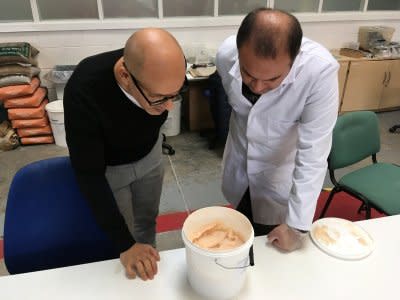Carrots could be key to making greener buildings, say researchers

Thomson Reuters
By Jim Drury
LONDON (Reuters) - Crunchy and tasty, yes, but could carrots also strengthen cement and cut carbon dioxide emissions for the building industry?
A group of researchers at Britain's Lancaster University has been using a household food blender to mix particles from the root vegetable with concrete to see if they can produce a stronger and more environmentally sound product.
"We found out you could increase the strength of concrete by 80 percent by using a small amount of this new material," lead researcher Mohamed Saafi told Reuters.
The addition of carrots prevent any cracks in the concrete, the team said. It also means less cement is required, therefore lowering the global carbon dioxide (CO2) output.
Cement is responsible for seven percent of total global CO2 emissions, according to International Energy Agency estimates.
"Our preliminary results show that adding about half a kilogram of carrot nanomaterial will reduce about 10 kilograms of cement per one cubic meter of concrete," Saafi said.
The team have also tried sugar beet fibers in cement mixtures, with all their vegetables coming from food waste.
They will continue to test their mixtures alongside their commercial partners, a Scottish company which makes paint using root vegetable fibers.
(Writing by Patrick Johnston; Editing by Gareth Jones)
See Also:

 Yahoo News
Yahoo News 
